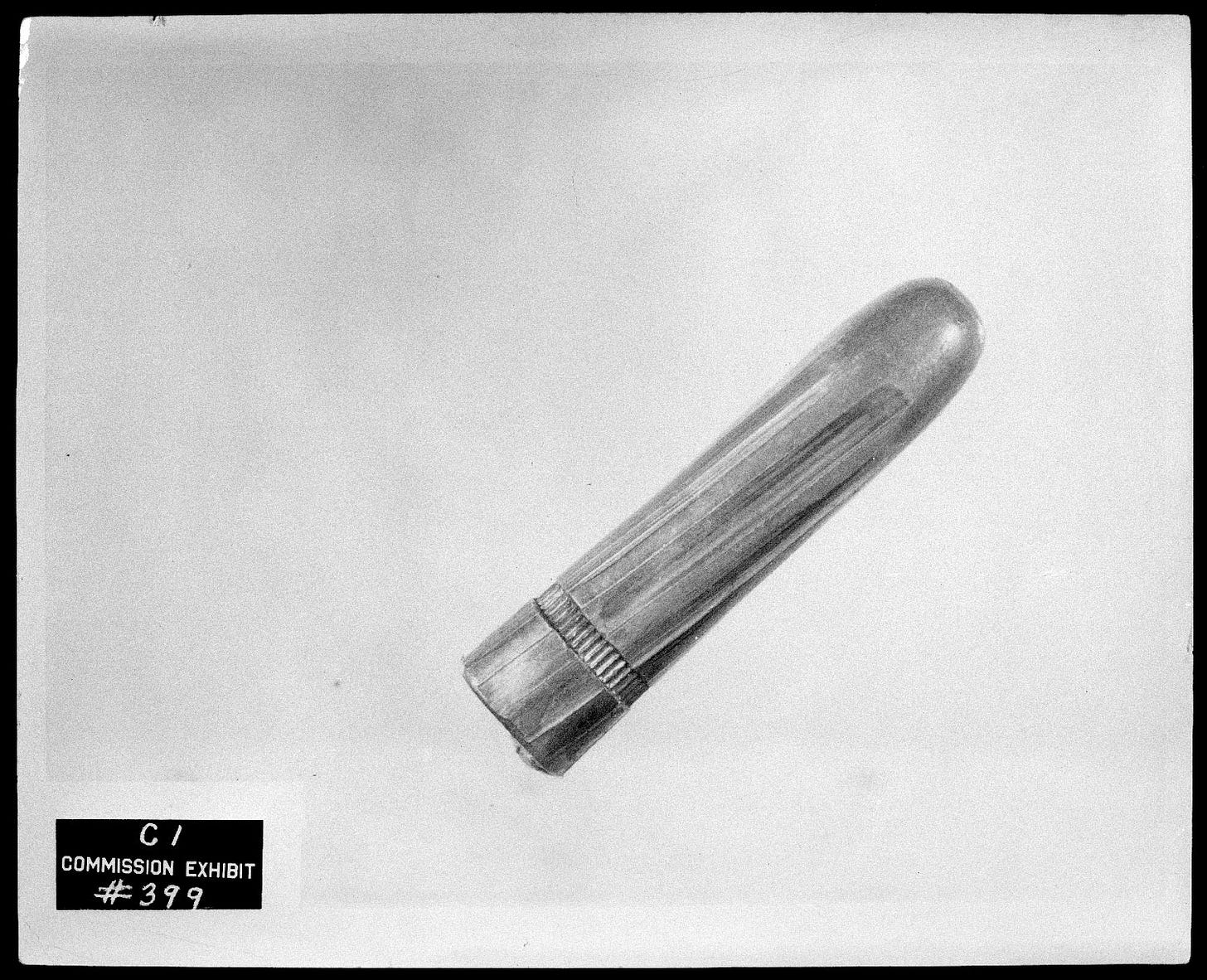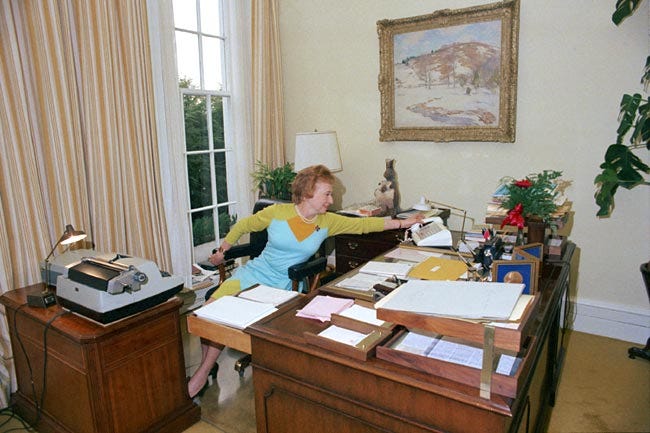Gullible's Travels
“The first of all the forces that rule the world is the lie.” ― Jean-François Revel


A body has to wonder how Americans can be so gullible after the history of our country. We have been killing presidents and our inspiring leaders for the last 150 years, launching wars under false pretenses, assassinating duly-elected presidents and prime ministers of foreign countries when they did not serve our imperial purposes, and then believing the layers of lies that emerge in the government’s coverup documents like the “Iran Contra Report” or “The Warren Commission.” We have readily embraced the prevarications and omissions because the falsehoods give us comfort. Our cultural preference is to believe that a massive democratic republic produces an abundance of lunatics who are able to single-handedly plan and kill multiple historic figures with their obsessive drive and murderous skills, and there are no other suspects.
The most challenging notion for Americans to accept is the idea that there are powerful economic and political interests that are willing to eliminate any leader that threatens their complex controls of finance and military contracting. Instead, we choose a fantastical construct that a crazed gunman with a highly inaccurate World War II Italian rifle can fire three spectacular shots and kill the most popular president of his generation, or that the killer of a civil rights leader was able to find out when and where the reverend was staying in Memphis, book a room across the way, fire a fatal shot, and then readily escape to Canada.
These were not both random acts of disturbed minds, nor was the murder of RFK, who weeks before he was taken down in Los Angeles, had privately stated one of his purposes in running for president was to use the powers of the office to find out the truth about who had killed his brother. Former FBI agent William Weyland Turner, who later became a journalist and investigated the JFK assassination, said he was convinced Bobby was killed because he was determined to reopen the investigation into his brother’s murder in Dallas. The two Kennedys were probably the only leaders in history who had issued their own death sentences. JFK, shortly after the Bay of Pigs and his conflict with the Central Intelligence Agency over how it was handled, had said, “I will splinter the CIA into a thousand pieces and cast it to the wind.” Less than a year later he was dead.
We are always, after every great American tragedy, in a hurry to move on, and barely even look over our shoulders at what lies bleeding in the distance. There is rarely time to recover and seek the facts. Americans want to quickly heal, and we cling to the fatuous nonsense of closure, refusing to take ownership of our history. Even when our government acknowledges evil forces afoot killed JFK, we simply accept we have been lied to for a few decades and hurry to punch our time clocks and get to lunch meetings. What note did our population even take of the fact that three years after he was murdered, the president’s brain went missing from the National Archives? Is there nothing sufficiently insidious about such a theft that it might bother us? An honest forensic examination was certain to have shown shots from the front, not the rear, but we were as untroubled as when the news came from the House Select Committee on Assassinations in 1979 that concluded there were at least two guns firing in Dealey Plaza and JFK was a victim of a conspiracy.
Demanding closure and exercising deceit are not ways to serve your country. Truth is the only curative. Political consultant and journalist Doug Thompson confronted the power of denial even among those who were present in the midst of American tragedies. On a flight between Kansas City and Albuquerque in the early eighties, he met the former Texas Governor John Connally, who later offered to help Thompson’s client running for public office. Connally, a passenger in the presidential limo with JFK on the day of the crossfire, had dinner with Thompson during the New Mexico campaign, and the consultant found the courage to ask him about the assassination. The governor had disagreed with the generally accepted version of events but had never suggested his thoughts about the killers.
“Do you think Oswald fired the gun that killed John F. Kennedy?” Thompson asked.
“Absolutely not.” Connally had not hesitated to answer. “I do not, for one second, believe the conclusions of the Warren Commission.”
“Then why, if I may ask, have you not spoken out about this?”
“Because I love this country and we needed closure at the time. I will never speak out publicly about what I believe.”
Big John’s courage was rather small; he just wanted the country to move on, undoubtedly because he was pretty certain what had happened, and it did not fit the American fairy tale our historians have been writing. The military was pushing for a war in Vietnam, we had not got into a good money making tussle since Korea, and JFK had just signed National Security Action Memorandum 263 to have all U.S. troops out of Southeast Asia, a withdrawal that was to begin after his re-election. No money to be made without war. The mob also wanted JFK dead. They had helped rig elections in Chicago and West Virginia to give him the Electoral College and as soon as he became president he named his brother as attorney general, and Bobby sent his good offices after the American Mafia, the kind of betrayal that leads to sleeping with the fishes.
The CIA, too, hated the president because he had refused to invade Cuba or conduct a preemptive nuclear strike on Moscow and had not provided air support when their adventure at the Bay of Pigs went to hell, and let us not forget Texas oilmen who were seething at JFK’s plans to end the oil depletion allowance, a multi-billion dollar tax break for energy companies as their reserves dwindled. JFK’s vice president, as well, LBJ, has been increasingly implicated through the years as having the means, motive, and opportunity to take out his rival. Johnson knew he would never be president while Kennedy was alive and that RFK was lobbying to have him removed from the ticket.
The case against LBJ is considerably stronger than has been widely contemplated. The theory is masterfully examined in Phillip F. Nelson’s book, “LBJ: The Mastermind of the JFK Assassination.” Nelson’s work is scholarly and is never given appropriate attention because the institutions of American culture do not wish to confront our potential historical horrors. He got almost no media coverage when his book was released, which is the same reason the History Channel was forced to pull its documentary naming JFK’s killers in “The Men Who Killed Kennedy: The Guilty Men.” Spoiler alert: It was LBJ.
John Connally, the Texas rancher from Floresville, had a chance, even in death to unveil the truth, but his family declined. The governor had been hit in Dealey Plaza by what became known as the “magic bullet,” which the Warren Commission forensics specialists said entered the president’s back near his spine, came out his throat, made a sharp right turn, entered Connally’s back and broke two ribs, exited the front of his rib cage, tore into his wrist, and broke through skin on his thigh. The assessment was it had transversed fifteen inches of flesh and human bone, including 15 layers of clothing, and had kept its perfect shape. This bullet, which came to be known as Commission Exhibit 399, was in pristine condition when it was found, most likely after being planted, on a gurney next to the one that had carried Connally into Parkland Hospital.

In the days prior to Connally’s body being interred in the Texas State Cemetery in mid-June of 1993, an effort was made to have a partial autopsy conducted. Forensic experts from the House Select Assassinations Committee and others who had studied the magic bullet nonsense, wanted to remove fragments from the late governor’s wrist. Cyril H. Wecht, a past president of the American Academy of Forensic Sciences and a persistent critic of the Warren Commission, told the Washington Post prior to the interment, “The significance of what we're attempting to do is that these fragments must have come from that bullet, according to the Warren Commission. They cannot have come from anywhere else. It is the linchpin of the sole-assassin conclusion. Everybody on both sides agrees."
Their goal was to determine if those bullet fragments in Connally’s wrist originated with CE 399, and if so, it would prove the magic bullet theory. If fragmented ballistics were non-conforming to the magic bullet, that would have served as incontrovertible evidence of a second shooter. The fragments might also contain more mass than is missing from the near pristine CE 399, too, which would also mean there was not as much magic in that bullet as the Warren Commission had hoped and at least two guns had been shooting at an American president. Filmmaker Oliver Stone wondered on the day of Connally’s funeral why the defenders of the Warren Commission would not be pushing for extraction of the fragments from the wrist to prove their case.
The truth of November 22, 1963 might be buried in the Texas State Cemetery in the wrist of a rancher from Floresville, Texas, who happened to be governor on that day in Dallas. The facts have kept dying, a thousand deaths, year after year, because the honest tale remains too horrible for Americans to believe, like trying to explain the human degradation of a concentration camp. Not even the descriptions of first hand witnesses can be trusted, and the ripples emanating outward from the lies about Dallas are still infecting the credibility of our government and the people elected to public office. We can know the facts of who and what we are, though, and by doing so become better than what we have been. No nation can evolve without owning its history.
Consider Richard Nixon, who resigned in disgrace after the Watergate break-in of Democratic headquarters. He seemed to let it leak that the CIA may have been involved in JFK’s assassination. The break-in was so bungled it almost appeared to investigators the White House Plumbers wanted to be caught. One theory was that the CIA operatives involved in busting into get political information wanted Nixon brought down because he was planning to end the War in Vietnam. In a recording of a conversation between the president and his CIA Director Richard Helms, Nixon appears to imply that if the FBI did not shut down the Watergate investigation, the truth of JFK’s murder might become publicly known. If Helms did not threaten the FBI to stop it, Nixon seemed to imply the CIA’s involvement in JFK’s killing would become public knowledge and Helms needed to deliver a message for the FBI to back off on Watergate. Here’s the message Nixon gave Helms to deliver, which implies the director of the FBI, J. Edgar Hoover, LBJ’s neighbor, may have played a role in facilitating the assassination:
“Say, ‘Look, the problem is that this will open the whole, the whole Bay of Pigs thing, and the President just feels that, ah, without going into the details ... don’t, don’t lie to them to the extent to say there is no involvement, but just say this is sort of a comedy of errors, bizarre, without getting into it, the President believes that it is going to open the whole Bay of Pigs thing up again.’”
And we can’t have that because we are Americans and we love our country, John Connally style, and we want to heal. It’s time to move on, always. The heels must heal. Our ritual, though, is to muddle up the truth with misdirection and and blunders by credulous clowns that help hide the facts. Eighteen minutes, for example, of Nixon’s White House phone conversations with Helms and other investigators, were erased. The only explanation offered was specious nonsense about his secretary, Rose Mary Woods, stretching for the machine and accidentally pressing a “record” button when she should have been rewinding, or some nonsensical crap. Even the most cautious of historians have acknowledged over the decades it is entirely possible there might have been a conversation about JFK’s death and who killed him and the damage that might be done if that information were to be made public. Nixon handed out threats like party favors. It was not accidentally erased; it was made to go away because, well, you know, the country had to heal from Watergate.

Maybe healing was not what happened. There’s a good chance by then our government by the people, for the people, and of the people already had a terminal disease and was ingesting political palliatives to keep us alive. We just needed to breathe long enough for the American corpus to be completely and finally raped when the Reagan and Bush crowds entered the room and laid the predicates for Iran Contra and other lies. So, Nixon and his vice president, Gerald Ford, cut a deal. Nixon resigned to avoid impeachment and prosecution, and, Ford ascended to the presidency. In exchange for living in the White House as POTUS, Ford agreed to pardon the president who had felt a need to declaim on TV, “I am not a crook.” He was, in fact, something much worse, a power-hungry ambitious charlatan and prevaricator whose greed and ego took his country as close to a fatal constitutional crisis as it has ever come.
But, hey, you know, the country needed to heal, so we never got the complete truth, regardless of the great journalism performed. There ought to have been a trial for Nixon and Lee Harvey Oswald, but both were avoided by design. What might we have learned from Oswald about the people he had been dealing with or from the White House Plumbers and where they were getting their orders? Discovery for such trials could have taken us right to the assassin’s door. The facts would have been laid out like airplane wreckage being reconstructed in a hangar, and might have delivered enough of an outline that the public could know the shape of their collective horror, which was that America was very much like many other countries of the world. People leading with innovative ideas that threatened legacy power structures and cash flows could be killed.
We have arrived, once more, of course, at a similar juncture. Comical orators and right wing actors have begun to suggest it is important that Donald Trump be pardoned for whatever crimes he might have committed and sending a former president to prison could tear the country apart? I’d argue his presidency and evil have already sundered what collective good will existed among our fellow citizens. Most of us cross the street when we see MAGAts coming down the sidewalk in our direction. A pardon is a further corrosive of our democracy, and cannot be tolerated by the public. Some kind of proof is needed that the rule of law is equally applied. Jack Smith was easy to believe when he said as much with his post-indictment statement. Who didn’t want to believe the man? Trump must deal with the full force of the law, have his day in court before a jury of his peers, and be punished according to federal guidelines. Any less of an outcome further diminishes our republic.
When Richard Nixon died, I was assigned to travel with a broadcast crew to Yorba Linda, California for his funeral. The disgraced president was to be buried at his library close to the house where he was raised. I tried to feel sympathy for him and his family but I kept thinking about his efforts to sustain the Vietnam War during the 1968 election so he could campaign on ending it, even if that almost certainly was not his plan. I had been to the streets of Washington, D.C. for multiple protest marches and had lost friends to the meaningless war in the rice paddies of Southeast Asia. My impulse, I told a local reporter who interviewed me later, had been a dark urge to go drive a stake through Nixon’s heart to assure he was dead. I was only partially kidding.
In an almost Shakespearean turn, when the committal of his body was completed, there was an inordinately loud clap of thunder and a hailstorm opened up on the attendees. The pelting lasted several minutes with golf-ball-sized hailstones knocking our satellite trucks off the air. Temperatures fell almost 30 degrees in minutes. Such a storm was unheard of in sunny Yorba Linda, but the country survived Nixon. Trump is different, though, much worse. When you read the indictment, the inescapable conclusion is that he is guilty of extreme crimes that endangered the country, and may still be doing so.
And I’m not sure we can make it through another coverup of the truth.